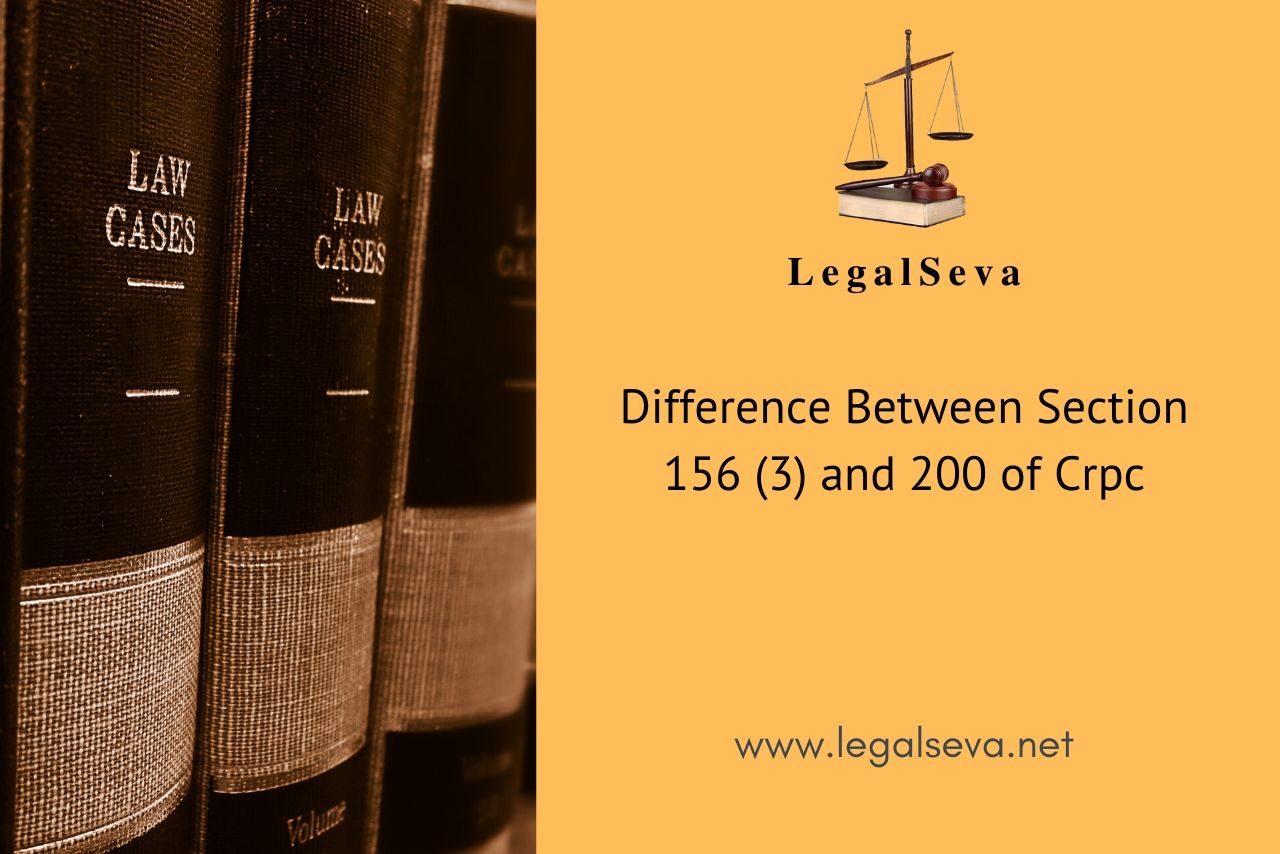Last Updated on June 20, 2024 by Satish Mishra
Section 156 (3) of CrPC states that rules about a police officers power to investigate a cognizable offence. 156 states that:
(1) Any officer in charge of a police station may, without the order of a Magistrate, investigate any cognizable case which a Court having jurisdiction over the local area within the limits of such station would have power to inquire into or try under the provisions of Chapter XIII.
(2) No proceeding of a police officer in any such case shall at any stage be called in question on the ground that the case was one, which such officer was not empowered under this section to investigate.
(3) Any Magistrate empowered under section 190 may order such an investigation as above- mentioned.
Also Read- WHEN CAN POLICE DO REINVESTIGATION?
Section 200 of CrPC states that:
Examination of complainant: A Magistrate taking cognizance of an offence on complaint shall examine upon oath the complainant and the witnesses present, if any, and the substance of such examination shall be reduced to writing and shall be signed by the complainant and the witnesses, and also by the Magistrate: Provided that, when the complaint is made in writing, the Magistrate need not examine the complainant and the witnesses-
(a) If a public servant acting or- purporting to act in the discharge of his official duties or a Court has made the complaint; or
(b) If the Magistrate makes over the case for inquiry or trial to another Magistrate under section 192: Provided further that if the Magistrate makes over the case to another Magistrate under section 192 after examining the complainant and the witnesses, the latter Magistrate need not re- examine them.
Also Read- REINVESTIGATION BY POLICE
When the complaint is presented to a magistrate then the magistrate has three options available to him:
- Either to take cognizance over complaint and proceed with examination of section 200
- Direct an investigation under section 156 (3)
- Drop the proceedings on the complaint by refusing to take cognizance.
If the magistrate decides to take the cognizance then in such case he has to conduct an examination of section 200, according to which:
- A magistrate shall examine the complainant and witness
- The examination has to be conducted under oath.
- The substance of the examination has to be reduced in writing
- The substance has to be signed by complainant or witness and by the judge.
Also Read- ARREST OF A PROCLAIMED OFFENDER
The object of such examination is to form an opinion whether these are sufficient grounds to proceed or not. If there are sufficient grounds to precede then the court will issue the process under section 204, if there are no sufficient grounds to proceed then in such case the court shall dismiss the complaint.
Only for this purpose the examination of 200 is conducted.
156(3):
On a complaint the magistrate instead of taking a cognizance can order the investigation under section 156(3).
These orders for the investigation cannot be conducted after the cognizance has been taken on complaint. Therefore, if the magistrate has examined the complainant or the witness under section 200 then the investigation of section 156 (3) cannot be ordered.
Also Read- FIR IN CHANDIGARH PANCHKULA MOHALI ZIRAKPUR
It has to be noted that the magistrate can examine the complainant in order to decide that whether the cognizance must be taken or orders of section 156(3) be passed. Then in such case even though the complainant or the witness are examined the court can pass the orders for further investigation.
Hence, both the sections focus on investigation. The main difference is about the stage when these powers are to be invoked.
This post is written by Jagriti Mahajan of Kurukshetra University (KU, 2021) Batch. For more info on subject, please dial 99888-17966.
